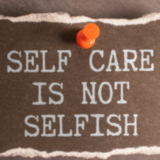Get active with incidental exercise
January 31, 2020 by Lisa Bywaters

With our crazy, busy lives it can sometimes feel next to impossible to squeeze in time for exercise. Add to that the unpredictability of living with a chronic condition, and our planned activities can often go flying out the door.
But there are things you can do to be more active. Incidental exercise – or the little bits and pieces you do over the course of your day – can really add up. It’s important to note that incidental exercise should not replace your regular, structured exercise program, but they’re a great way to boost your activity levels.
Here are some things you can do to increase your incidental exercise.
- Watching TV? Whether you’re watching the latest episode of your favourite show or binge watching an entire series, get up and move around during the ads. No ads? No problems. At the end of each episode, do something active. Go outside and check the letterbox. Take the dog for a walk around the block. If you have an exercise bike or treadmill, use it while watching your show.
- Love reading? Download an audio book and listen to it as you go for a walk. Just be mindful about how far you walk. It’s easy to get caught up in a book and walk further than you planned! Which has the potential to aggravate your condition and pain levels if you do too much.
- Going for a long drive? Make your journey more interesting, and more active by scheduling stops for you to stretch, walk around and discover new areas. It’s amazing what you can find when you take the time to explore.
- Shopping? Park your car a little further away from the shops than you normally would. Walk up or down the travellator or escalator – even if it’s just for part of the ride – rather than just standing in place.
- Work meeting? Take it outside. Suggest that you have walking meeting. You get to be active and less sedentary, with the added benefit of fresh air.
- Catching public transport? Get off a stop before your usual one. Explore your neighbourhood while getting some exercise and breathing deeply.
- On the phone? Walk around while chatting, rather than sitting down. But avoid moving about if you’re texting or looking at your screen. Our aim is to increase activity levels safely, not get injured in the process!
- Gaming? Fun! But it’s so easy to get caught up in the heat of the battle/chase/adventure, so set your phone alarm to go off every 30 minutes so you can get up and move.
- Cleaning? Go hard. Give the tiles an extra vigorous scrub. Flatten your recyclables rather than just tossing them straight into your recycling bin. Clean your windows (groan – but how good do they look when you’re done?). Vacuum the house and use all of the little attachments (who knew they made such a difference?).
Obviously there’ll be times when these activities are not possible or practical – especially if you’re having a flare. However some of them may actually help with your pain – things like standing and moving when your back is really sore, breaking up long trips with stops and stretches – they’ll provide exercise and pain relief.
Give incidental exercise a try. Before you know it, you’ll be feeling more energised and noticing a difference with your pain levels, sleep quality and mood.
Plus your house will be sparkling! Win-win!
More to explore
- Queensland Health – What is incidental activity?
- Exercise Right – Does incidental exercise actually help?










